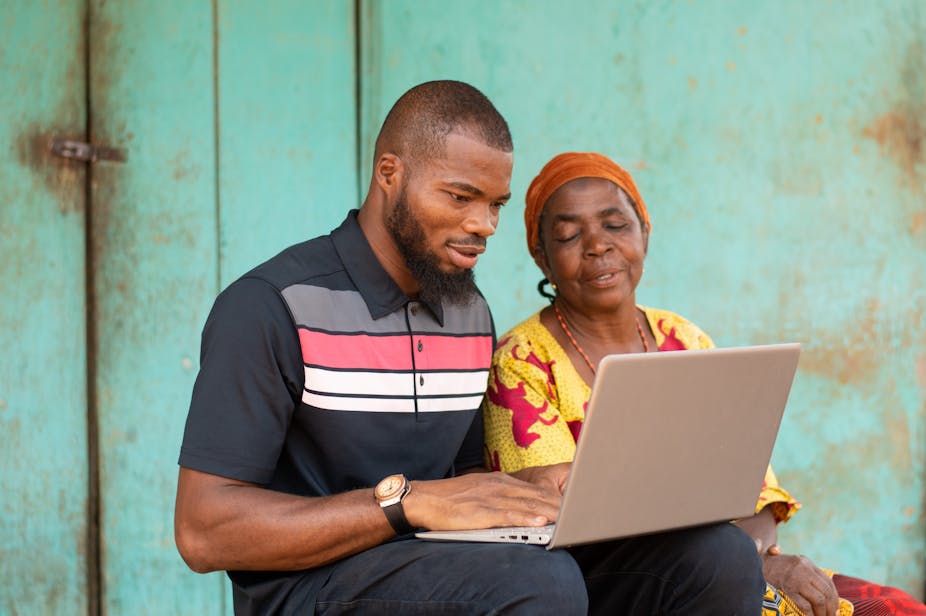Family stories are a way of capturing important historical events and they pass this knowledge on to future generations. As memoirist Nancy K Miller says, family stories are not just personal but an “aid or a spur to keep cultural memory alive”.
Hazel Barrett’s grandfather came to England on the HMT Empire Windrush in 1948. She wrote his story for my course Telling Lives, at the University of Leeds.
Now a lecturer at Sheffield College, Barrett emphasises the value of sitting down to listen to “unheard voices telling their unedited stories, which no history book can do so well”. But how should you go about this socially important and intimate act?

This article is part of Quarter Life, a series about issues affecting those of us in our twenties and thirties. From the challenges of beginning a career and taking care of our mental health, to the excitement of starting a family, adopting a pet or just making friends as an adult. The articles in this series explore the questions and bring answers as we navigate this turbulent period of life.
You may be interested in:
‘He is always there to listen’: friendships between young men are more than just beers and banter
Why ‘finding your purpose’ matters – and four ways to find yours
Your mullet is more than a haircut, it’s a political statement – a hair historian explains
1. Don’t delay
Many of us wait too long to become interested in our family history. Deborah Cass, who has been studying family history for over 25 years, never knew her own great-grandfather. But she managed to learn his story through a surviving cousin.
Cass advises: “Any family members … willing to participate and share their reminiscences with you are an asset.”
Bea Lewkowicz, director of two Jewish oral history archives, argues that an interviewer who is also a relative has the edge even over professional historians when it comes to older interviewees who may be experiencing impaired memory, as family can help to fill in the gaps.
2. Come equipped
Consider investing in audio recording equipment and test it first. Not videoing your interviewee will allow you to concentrate on their voice, and might put your relative more at ease.
Transcribe your recording and think about how to preserve both the audio and the transcription. They are likely to become a valued family resource, so consider uploading the files to a cloud server or a website.
There are many public archives of oral histories that take deposits. The British Library has one of the largest collections, including a section on migration, ethnicity and post-colonialism in Britain.
You could also equip yourself with professional techniques. The Oral History Society, whose tagline is “everybody’s story matters”, offers training, advice and online resources.
3. Research before you go
Find out as much as possible about the times and places your interviewee experienced beforehand.
Georgia Hennessy Jackson, who leads the storytelling programme for the Canadian Cancer Society, says that “identifying a moment of change can help get and shape a story”.
Examples from my former Telling Lives students include a Zulu grandmother who lived through South African apartheid, a grandfather who was a coal miner in Wakefield during the coal-mining strike, an Irish Catholic grandmother who became a devout Muslim in the 1950s. What made these family stories especially memorable is that the researcher identified a particular theme.
Pore over family documents such as birth certificates and old passports, photographs and heirlooms, however trinket-like they might seem. Family history requires research in its broadest sense.

4. Consider your questions
Colin Grant, author of Homecoming, an oral history of the Windrush generation, urges: “Don’t bring out a sheet of questions. Become familiar with what you want to ask in advance and expect surprises and digressions.”
Grant also suggests bringing a gift. “[It] doesn’t have to be a physical one; it can be you telling them something about yourself. Don’t just dive in.” The interview is a conversation, an exchange.
That said, prepare your questions. You will probably want to begin with basics, such as where and when your storyteller was born, their family members and other facts that they might need time to prepare.
Work towards asking more open questions and probing for sensory responses. Such as: what did it feel like to be the eldest of six children? And, can you describe the smell and taste of the food your mother would cook?
Food and drink are a good indication of a person’s time and place and allow your storyteller to travel back to their memories more easily. You might find it helpful to use family documents as prompts.
Listen also for the silences, the stories your relatives find hard to tell. Grant notes the West Indian habit of obfuscation: “Me don’t like people chat my business.” Such reticence is common among those used to being silenced, stigmatised or misrepresented.
5. Be ethical and be ready to be transformed
Don’t skip ethical considerations. Share your typed transcript with your storyteller, allow them to make changes and ensure you get approval for how you plan to use their story and words.
Hennessy Jackson says that “truly informed consent is more than signing a form. It’s about helping storytellers to understand exactly what is involved when they allow their story to be shared.” In other words, you need to talk with your relative about potential audiences for their story and the effects for them when others read or hear it.
You should tailor your approach to your interviewee from the start. If you think your storyteller will find a long interview overwhelming, schedule several shorter visits. And be ready for their story to have an effect on you.
As Grant says, “be prepared for tears”. You’re likely to be transformed by the experience – and your relative might be too.

You can download the e-book here. Thank you for your interest.

